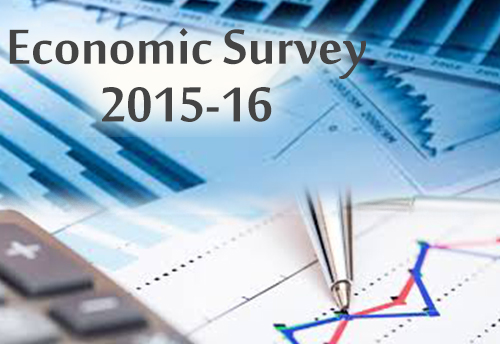Low earners should be offered the choice of contribution to the EPF – Economic Survey
Updated: Feb 27, 2016 07:18:07am

New Delhi, Feb 27 (KNN) Suggesting a fresh wave of labour market reform, the Economic Survey 2016, the most exhaustive study of the Indian economy, has suggested allowing the poor-some of whom may be liquidity constrained—to optimise as per their own personal requirements.
Elaborating the proposal the survey says, while the employer’s 12 per cent contribution to EPF would be unaffected, the only difference would be that employees could choose whether or not to save 12 per cent of their salary into EPF or keep it as take home pay.
The survey also analyses that such a change would effectively reduce the tax on formal sector labour while leaving informal sector labour costs unchanged. In a relative sense, it would therefore reduce the cost of hiring workers in the formal sector and incentivize more people into formality, where productivity levels and growth are higher.
Quoting a study conducted recently on the issue, the economic Survey mentions that the challenges are greatest for small firms without dedicated administrative units to deal with regulatory compliance issues.
The same Study has also reported that 35 per cent of firms find dealing with EPF-related regulations challenging. The EPFO requires that employers pay an administrative charge of 0.85 per cent of the worker’s salary (recently reduced from 1.10 per cent). This may not seem large, but it amounts to service charges of 3.54 per cent which are higher than the rates of most private mutual funds.
Quoting the same study, the Economic Survey Chapter on ‘Structural Changes in India’s labour markets’ mention that 24 per cent of worker respondents preferred cash because PF account money was difficult to access after retirement and resignation. This has caused approximately R 44,000 crore are lying in unclaimed, inoperative EPF accounts.
At the same time the Survey has commended EPFO for recent steps that will reduce transaction costs, such as allowing electronic transfers of money between accounts and creating universal account numbers for all employees that are portable between employers.
Identifying the EPF as an example of a subsidy for the rich, the Survey mentions that while mandatory for the poor, many rich people choose to contribute to EPF as well, primarily for tax reasons.
EPF contributions have an EEE status—Exempt, Exempt, Exempt— meaning that contributions, interest earned and withdrawals are all exempt from tax. This offers little benefit to workers who are mandated to contribute, because even the richest such workers—who earn R 15,000 a month—would be below the income tax threshold.
In the concluding lines, the economic think tank of the Government has opined that the Policymakers should consider whether lower earners should be offered the same choice, which the rich have —of whether to contribute part of their salaries to the EPF. (KNN/ DB)












